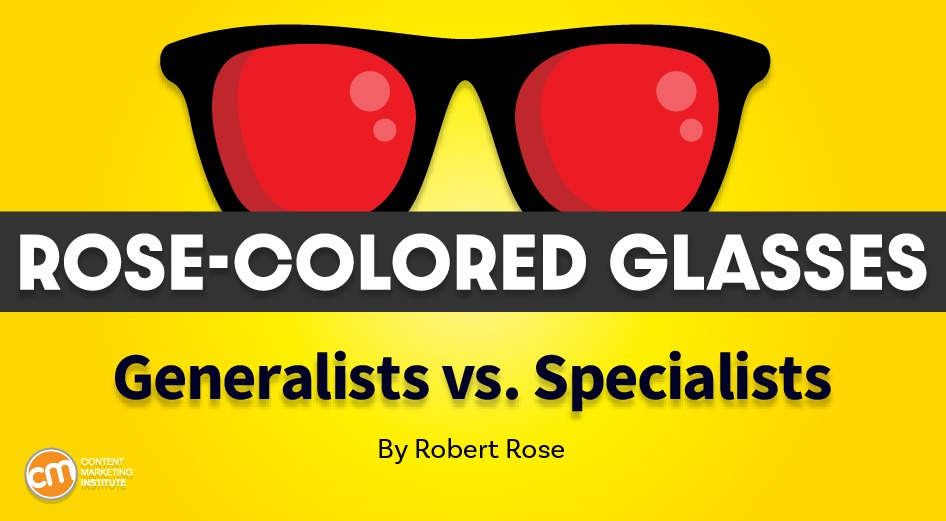Remember when your whole family went to the same doctor? Believe it or not, that wasn’t uncommon not too long ago.
That doctor is your go-to resource whenever you or a family member is sick, injured, or needs medical advice. You’ll get a checkup every year. And you’ll only see a specialist if you need a specific test or treatment.
Sounds strange, right?
A friend recently told me he had chronic headaches. I said the (most unhelpful) thing everyone says: “It sounds like you should see your doctor.”
My friend stopped and asked, “Which one?”
Should he call the cardiologist who treated him for high blood pressure? The ENT who cured his ear infection? The ophthalmologist who checked his eyes? The endocrinologist he saw for some other reason? Or his primary care physician, whom he will wait months to see because the office is so full?
Number of doctors focusing on a specialty has been steadily increasing over the past 60 years. From 1961 to 1970, 10% of internists switched to subspecialties. From 2011 to 2015, that number was 88%. In fact, only about 25% American physician who handles primary care for adults.
But what does any of this have to do with marketing?
Marketing is also affected by the trend of hyper-specialization.
One of the biggest marketing challenges today is balancing the number and types of resources needed by a team. Modern marketing plans change frequently. But changing plans used to simply mean shifting the attention of general marketers to different tasks. The resources remained the same – the team members just performed different activities.
However, in 2024, marketing requires hundreds of appropriate skills. Some specialties have emerged around technology or platforms (like CRM, E-Commerce, marketing automation, content management, customer data platforms, digital asset management, and analytics). Some revolve around Creative specialties (design, editorial writing, copywriting, Social Media content, Email writing, multimedia creators/editors, and event management). And then there are platform specialists (SEO, content strategy, influencer, ad network manager, etc.).
And of course now there are Artificial Intelligence experts involved.
Here’s a quick look at the upcoming Content Marketing Career Outlook and Salary 2025 for 2025 (published in September): About three-quarters of marketers (76%) say they need to master specialized or niche skills to stay relevant in the face of modern technology like AI.
Modern marketing is becoming a hyper-specialized practice. Balance the need for specific skill sets to execute your current strategy with the need for agile generalist teams who can handle the inevitable strategic changes that may be the most important marketing operations challenge companies face.
Specialist or generalist? That is the question
So what should we do about it? Does it make more sense to hire more deep specialists or more generalists?
Experts know a lot about one thing but probably know very little about anything else. They will help you distinguish one particular thing.
Generalists, on the other hand, know a little about many things but may lack deep knowledge of one particular thing. Their breadth gives you the flexibility to change priorities quickly.
This question reminds me of a story that may be an urban legend (but I like it anyway). As the story goes, someone asked the CEO of UPS how the company encourages such exceptional customer service with its drivers. The CEO replied, “We don’t hire drivers and teach them great customer service. We hire great customer service representatives and teach them to drive.”
If that sounds like an argument for specialists – it’s not (as both skills can be considered specialist roles). Instead, it supports a company’s conscious decision about where they want to focus their employee development.
Does that approach work in marketing? I think so.
Should you hire talented content creators and teach them how to understand analytics reports, work with AI, or excel on social media? Or should you hire deep analytics, AI, or social media experts and teach them to create differentiated content?
This decision doesn’t matter – as long as you make an informed decision one way or the other.
But I find the first way more effective.
The software company where I was CMO many years ago operated in a niche market that required professional knowledge and technical expertise. We chose a content marketing approach as our primary strategy, and from my days as a writer in the entertainment business, I knew how rare content creation talent was.
So my philosophy is to hire the best content creators and designers (experts) I can find. I feel like I can teach them the basics of media buying, analytics, and other classic marketing planning. In other words, I hired great content creators and taught them about the industry and marketing.
Spoiler alert: It worked. But only because two basic things ended up being true:

Digital Marketing Specialist – This is what you need.
- The business has agreed to invest time and resources to help content creators develop subject matter expertise and marketing skills. Developing expertise isn’t a one-time event – it’s an ongoing process.
- Content creators who want to learn how to become better marketers In my consulting work, I have encountered many marketing teams consisting of professionals not interested in topics important to the business. They say, “I don’t care about our industry. This is just a job.” I’ve even had people say, “I don’t care about marketing even though I’m in marketing. I just make great content.” These people feel like their job is simply to make sure the i’s are dotted and the t’s are crossed while earning a higher salary than other jobs. I advise these people to start looking now—because they won’t be around much longer.
Assuming your company meets these requirements, you need three elements to balance your team’s skills.
1. Building educational programs
I often advise my consulting clients to create ongoing knowledge-sharing opportunities. For example, as a CMO, I ran a program called Pizza and Knowledge Friday. We would invite technical subject matter experts to host an informal masterclass for marketers about pizza. They would talk about industry trends, dive into a specific challenge, or provide insight into how a particular technology works.
But I don’t just end our learning on pizza day. All marketers will need to demonstrate their new knowledge in practical applications to our business.
2. Integrate general guidelines into your expert’s process
A CMO friend recently told me about his incredibly advanced content strategy for his brand’s website. His team had already built and integrated personalized, targeted content into their Salesforce platform. But now he was worried. “We’ve trained these martech experts to be some of the most insightful experts in the field,” he said. “I’m horrified to learn how much they’re worth in the job market now.”
And that’s another reason people work cross-functionally. When you have multiple people who understand what’s going on, you reduce the risk of losing that knowledge when someone leaves. Because at some point, every expert is going to be in high demand and realize their market value.
So get your experts involved in your marketing projects. I have yet to find a marketing concept that is sufficiently difficult to understand. As my mentor, marketing professor Philip Kotler, once said, “Marketing takes a day to learn. Unfortunately, it takes a lifetime to master.”
3. Consider outsourcing as you scale
You want to invest in people who you believe will stay with you for a while. So most education investments should go toward employees rather than freelancers. But sometimes, rent instead of lease Your expertise makes more sense.
For example, projects (such as implementing a new digital asset management system, search taxonomy, workflow, or content marketing approach) do not require full-time hiring.
You wouldn’t hire a full-time plumber for your home, right? But you also wouldn’t invest time learning more than the basics of plumbing. So, for example, you shouldn’t buy a complex content management system and leave it up to your marketing team to figure out implementation plans and workflow changes on their own.
Instead, create a resourcing strategy that can handle temporary initiatives that require time-sensitive expertise and a specific team of professionals. One side effect of the hyperspecialization of marketing is the rise of segmented marketing services and the proliferation of freelancers.
Building a balanced strategy
Over time, you can build a strategy that balances specialists, generalists, and outsourced experts. For example, you may find that you gain a level of expertise that you can apply as your marketing strategies evolve.
For example, to create content, you might have:
- Level 1 Content Creator — an in-house SME that can write and even teach other writers
- Level One Freelance Expert — an outsourced small to medium-sized business that occasionally creates content or creates frameworks for the team to create
- Secondary Creative Specialist – an in-house marketer who has enough knowledge of content creation to write a framework or transform raw material into great content
- Level 3 Creative Specialist – a freelance writer always ready to help convert raw material into well-crafted articles (with some input)
- Level Four Expert – A junior in-house writer or freelance writer needs clearly formed topics and topic support to create a good article
Conduct an audit of your current team’s skills. Then, develop a hiring, training, and freelance plan to grow your marketing team strategy.
By doing so, you’ll know who to call for any marketing-related issues.
Comment Policy: We truly value your comments and appreciate the time you take to share your thoughts and feedback with us.
Note: Comments that are identified as spam or purely promotional will be removed.
To enhance your commenting experience, consider creating a Gravatar account. By adding an avatar and using the same e-mail here, your comments will feature a unique and recognizable avatar, making it easier for other members to identify you.
Please use a valid e-mail address so you can receive notifications when your comments receive replies.
